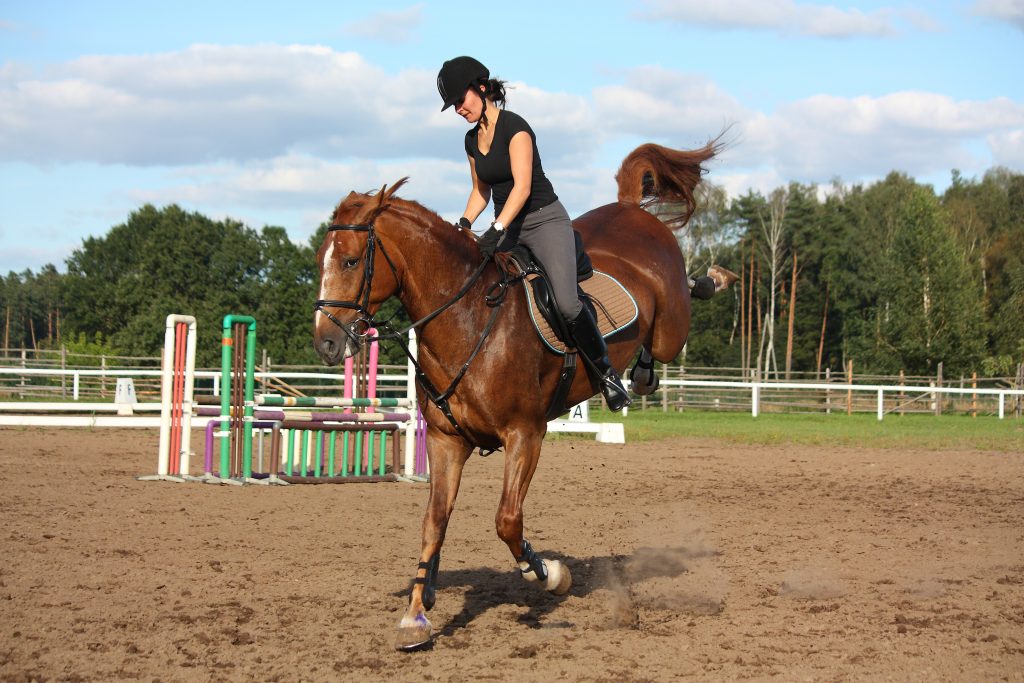If your horse is experiencing a lack of appetite, weight loss, poor performance, behavioural changes, or recurring mild colic, it may be suffering from Gastric Ulcers, properly known as Equine Gastric Ulcer Syndrome (EGUS).
What is Equine Gastric Ulcer Syndrome (EGUS)?
EGUS is a common health issue in horses, characterised by erosion or ulceration of the stomach lining due to prolonged exposure to stomach acid. Gastric ulcers can affect horses of all ages and disciplines, with a particularly high prevalence in all performance horses.
Although treatable, gastric ulcers can negatively impact a horse’s overall health, performance, and well-being if left unmanaged. In severe cases, the condition can progress to the point where the stomach may perforate, which can be fatal. These fatalities are more common in foals than in adult horses.
What causes Gastric Ulcers?
Horses develop EGUS primarily due to their unique digestive system and management practices that do not align with their natural grazing behaviour. This creates an imbalance between the protective mechanisms of the stomach lining and exposure to stomach acid. Key contributing factors include:
- Infrequent Feeding: Horses are designed to graze continuously, producing stomach acid 24/7. Long periods without food allow acid to build up in the stomach, leading to erosion of the stomach lining.
- High-Grain Diets: Diets high in grains or concentrates containing high starch levels increase acid production and reduce saliva production, which normally helps neutralize stomach acid.
- Exercise: Intense or prolonged exercise increases abdominal pressure, causing stomach acid to splash up into the vulnerable squamous cardiac region of the stomach, which, unlike the squamous/pyloric section of the stomach, has much less resistance to acid. This is particularly common in high-performance horses.
- Stress: Stress from various sources—such as travel, competition, confinement, or changes in environment—can increase the likelihood of developing gastric ulcers. Stress reduces blood flow to the stomach, weakening its ability to repair itself, high cortisol levels directly interfere with acid and mucous production.
- Medications: The long-term use of NSAIDs (e.g., phenylbutazone or “bute”) can inhibit the production of protective prostaglandins in the stomach lining, leading to ulcers, particularly in the glandular region.
NSAIDs affect specific enzymes in the inflammation cascade, mainly Cyclo-oxygenase-2. However, a similar enzyme (Cyclo-oxygenase-1), which has a major role in acid/mucous regulation in the stomach, can be inhibited long-term and lead to ulcer formation.
- Limited Access to Forage: Horses that are stalled for long periods or have limited access to hay or grass are more prone to ulcers, as constant grazing provides natural protection against acid buildup.
What are the symptoms of Gastric Ulcers?
The symptoms of gastric ulcers in horses can vary, and some horses may show no obvious signs. However, common symptoms include:
- Poor appetite, weight loss, and gradual loss of body condition, as well as a dull coat.
- Colic-like behaviour, with episodes of discomfort, pawing, lying down, or rolling, particularly after eating.
- Poor performance under saddle, resistance to being saddled or girth tightened, reluctance to move forward. These signs can look nearly identical to back pain when ridden. The head is often carried high during work with a facial grimace.
- Changes in behaviour, such as becoming irritable, grumpy, or less willing to work, especially when ridden.



How do we diagnose EGUS?
Diagnosing gastric ulcers requires a thorough examination by a vet. The gold standard for diagnosis is gastroscopy, a procedure we use in which a flexible endoscope is passed through the horse’s nostrils and down the oesophagus into the stomach to visually inspect the stomach lining. With sedation, this simple procedure allows us to determine the number, size, and severity of the ulcers. To ensure the stomach area is clear for examination, the horse should have no food for 15 hours or water for 2 hours prior to the procedure.
How do we treat Gastric Ulcers?
We need to reduce stomach acid production, protect the stomach lining, and promote healing. Common treatments include:
- Omeprazole, a Proton Pump Inhibitor (PPI), is the most commonly prescribed medication for gastric ulcers in horses. It works by reducing stomach acid production, allowing ulcers to heal. It is highly effective, with many horses showing improvement within days to weeks of treatment.
- Sucralfate, a sucrose sulfate-aluminium complex, is essential for treating severe ulcers and those in the lower (pyloric) area of the stomach. It essentially forms a barrier over the ulcer and allows it to heal more quickly and effectively.
- Misoprostol, a prostaglandin, has recently been found useful not only for treatment of colitis, but also for gastric ulcers in horses. Although it has been found to be very effective, strict control in handling the medication is required.
- Dietary Management is a crucial part of any treatment plan. Allowing horses to graze or have access to soaked hay throughout the day helps buffer stomach acid, while reducing the amount of grain in the horse’s diet and replacing it with forage-based feeds can lower acid production. Using slow feeders for hay can help mimic natural grazing behaviour, ensuring the horse spends more time eating and producing saliva to neutralize stomach acid. Low-sugar/low-starch diets are essential. The use of dietary antacids, such as hydroxides, along with probiotics, is also useful in the management of long-term ulcer prevention.
- Reducing Stress can also play a part. Providing more turnout, reducing travel or competition, and maintaining a consistent routine can help prevent the recurrence of ulcers.
Prognosis
With proper treatment, most gastric ulcers heal within 4 weeks. Horses generally respond well to treatment, and symptoms such as poor appetite, colic-like behaviour, and performance issues often improve quickly.

Call to ask any question
01420 551 365
Equine Services
Your Trusted Equine Partner
Expert veterinary care for horses in Surrey, Hampshire and the surrounding areas.


